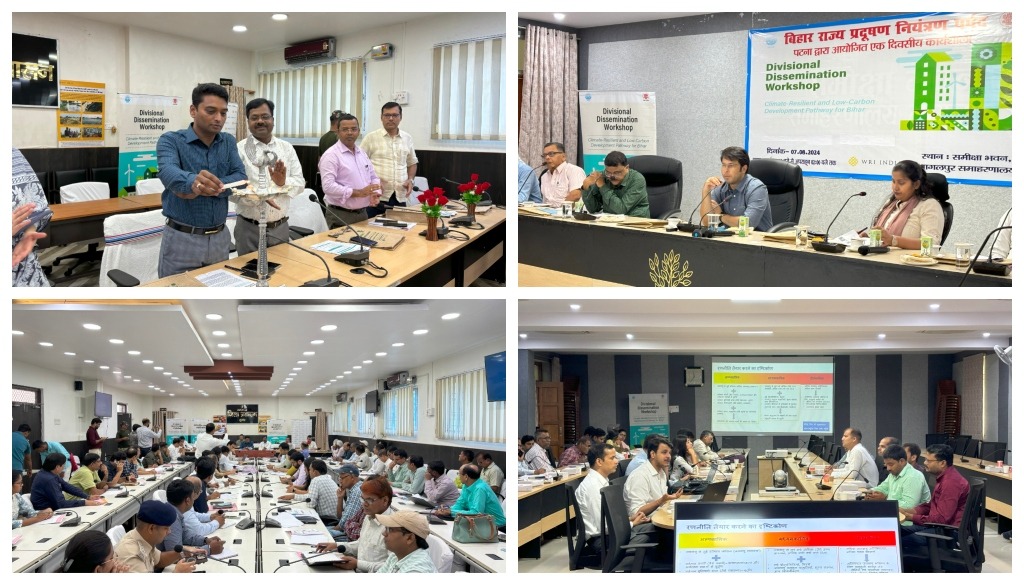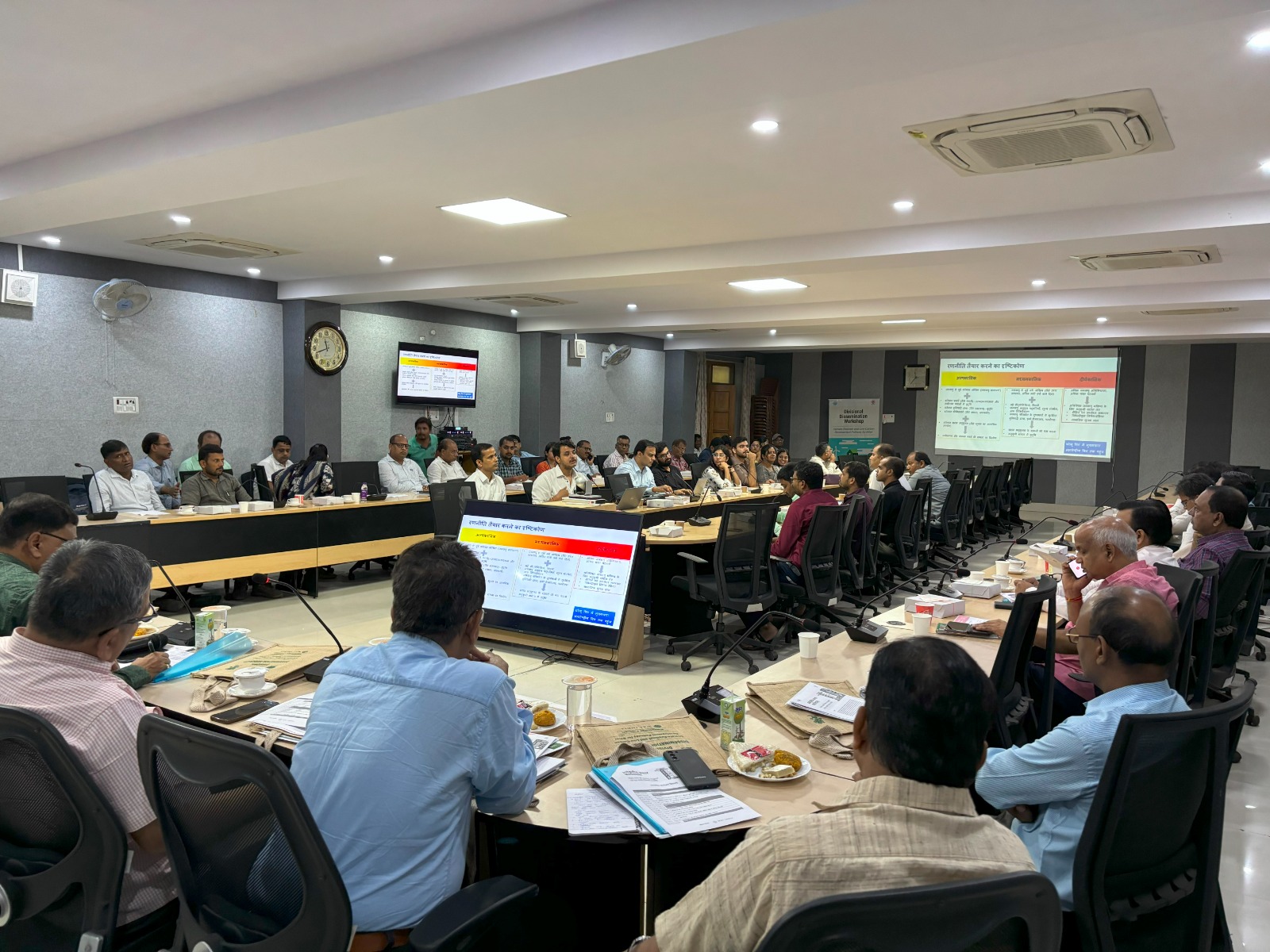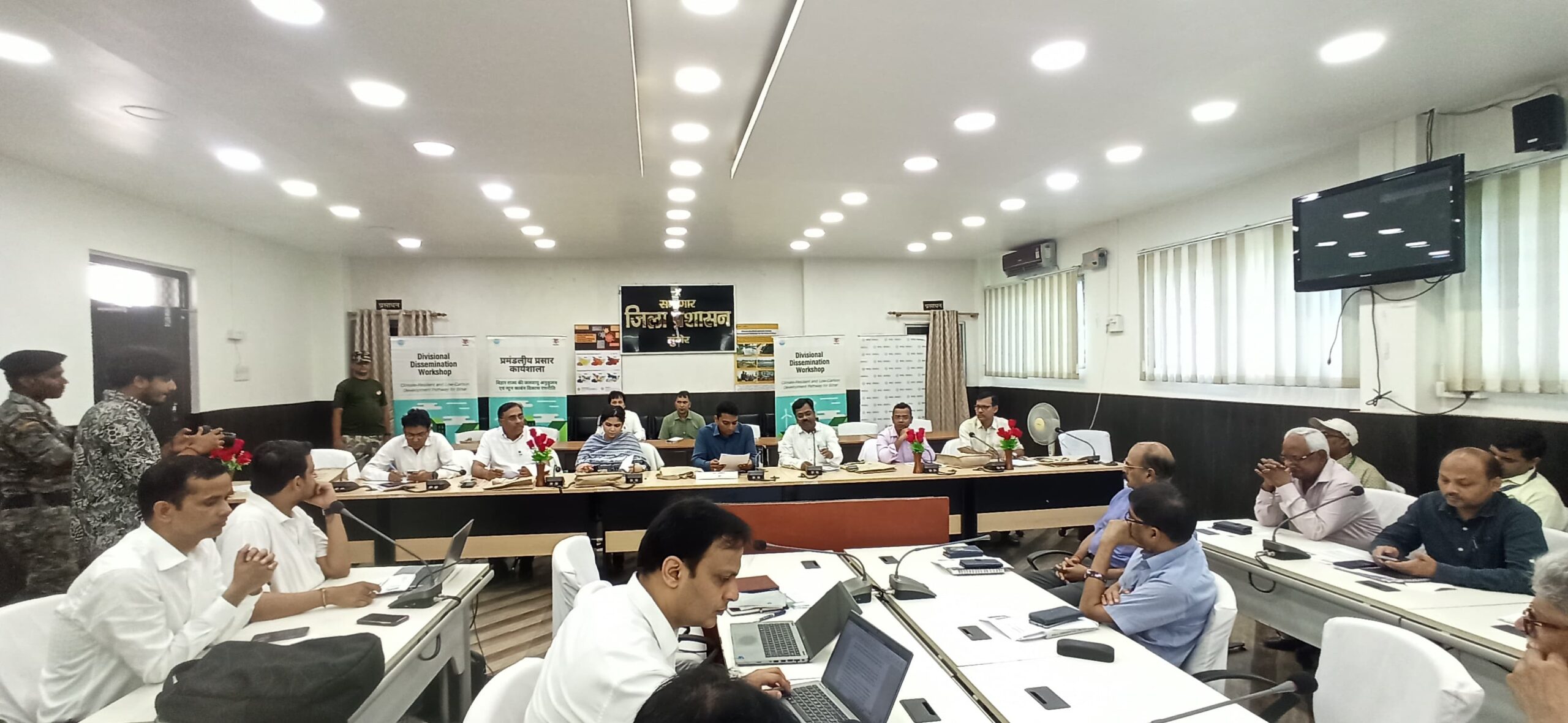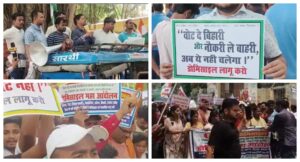Workshops in Bhagalpur and Munger Push Forward Bihar’s Climate Resilient Pathway

Bhagalpur/Munger: Bihar’s journey towards becoming a carbon-neutral state gained momentum with recent divisional workshops focused on climate change and sustainability. Held on August 7 in Bhagalpur and August 8 in Munger, these workshops aimed to enhance the capacity of local stakeholders as part of the broader initiative to implement the “Climate-Resilient and Low-Carbon Development Pathway for Bihar.”
In Bhagalpur, the event took place at the Samiksha Bhawan in the Collectorate, where Deputy Development Commissioner Kumar Anurag inaugurated the session. Anurag highlighted the delicate balance required between development and environmental responsibility, urging stakeholders to integrate climate-adaptive practices into infrastructure projects. “Our development pace must be aligned with environmental considerations, particularly regarding carbon and greenhouse gas emissions,” he remarked. He also called for a reduction in plastic use and greater adoption of renewable energy.
Senior Deputy Collector Krishna Murari addressed the gathering, discussing the severe challenges posed by climate change and the urgent need for corrective measures. He pointed to Bihar’s vulnerability to extreme weather events, emphasizing the collective responsibility to achieve carbon neutrality.

Program Managers from WRI India, Dr. Shashidhar Kumar Jha and Mani Bhushan Kumar Jha, provided further context on Bihar’s climate strategy. Mani Bhushan explained that the Bihar State Pollution Control Board (BSPCB), with support from organizations such as the United Nations Environment Programme (UNEP) and Shakti Sustainable Energy Foundation, has been developing a comprehensive state-level plan that integrates both climate adaptation and mitigation. The workshops, he noted, were designed to raise awareness among local stakeholders and identify challenges in implementing the strategy.
Dr. Shashidhar presented alarming data on rising temperatures in Bihar, projecting further increases by 2070. He also highlighted Bihar’s carbon emissions, currently at 9.7 crore tons, accounting for approximately 3% of India’s total. He stressed the importance of adaptive measures in agriculture, water management, and forest conservation to mitigate climate impacts.
In Munger, the workshop was held at the Munger Sanghraalay and chaired by District Magistrate Avaneesh Kumar Singh, who stressed the urgency of adopting climate-friendly practices in waste management, construction, and agriculture. “Without action now, future generations will bear the brunt of our inaction,” Singh warned, underscoring the need for local-level discussions and practical steps.

Munger Deputy Development Commissioner Ajit Kumar Singh echoed the call for climate-friendly development, emphasizing Bihar’s particular vulnerability to climate-related events. The workshop provided a platform for stakeholders to exchange ideas and strategies for grassroots-level implementation of Bihar’s climate agenda.
The discussions also featured contributions from officials across various departments. Avinash Kumar, Program Officer at Development Alternatives, spoke on the role of industry in reducing emissions, particularly within the brick manufacturing sector. Dr. Swarna Choudhary from Bihar Agricultural University emphasized the benefits of promoting low-emission crops such as pulses and millets.
These workshops in Bhagalpur and Munger follow an earlier phase of similar events held in Darbhanga, Purnia, and Saharsa in July. These efforts are laying the groundwork for ongoing dialogue and collaboration among local stakeholders, vital to refining and implementing Bihar’s ambitious climate strategy.





